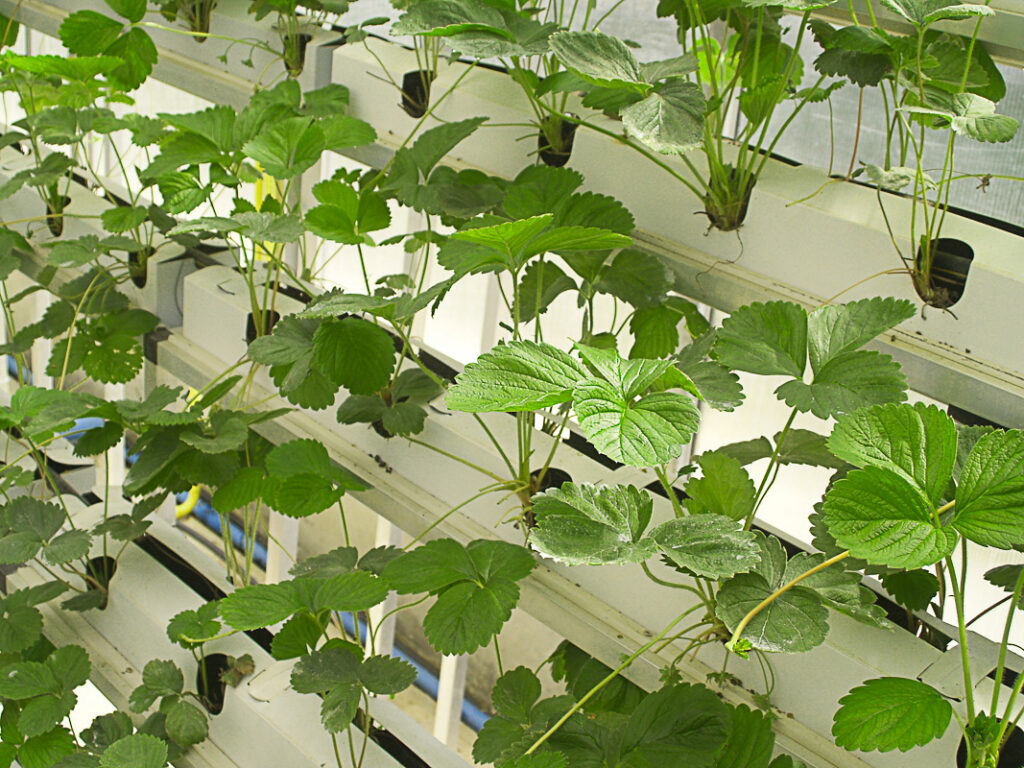Many people, especially soil growers, claim that organic hydroponics is an impossible thing to do. They claim that using organic hydroponic nutrients will clog and stink the system fails to provide all the necessary nutrients needed for plant growth. In this post, we’ll explore what are organic hydroponic nutrients and the best ways to use them.
*This post contains compensated links. Find more info in my DISCLAIMER. As an Amazon Associate, I earn from qualifying purchases.
Want to start a hydroponic garden at home easily? Check out our recommendations for Best Hydroponics Starter Kits for Beginners.
What Are Organic Hydroponic Nutrients?
These are nutrients used in organic hydroponics, a system used to grow crops without using water, and synthetic fertilizers such as pesticides or fertilizers. Nutrients in organic hydroponics are acquired from animal waste and organic plant materials.
Organic Nutrients Vs Non-Organic Nutrients
All gardeners know the importance of nutrients but only a few of them know the differences between organic and non-organic plant nutrients. These nutrients differ in some ways, as much as they may provide essential nutrients to plants.
Making a decision on which nutrients to use is a gardener’s choice. Both nutrients have their advantages and disadvantages and that will help you make the right choice.
Both nutrients are a source of fertility for the plants. They provide plants with important elements such as nitrogen.
In hydroponic gardening, growers can use either organic or non-organic nutrients. Despite not growing in soil, plants benefit from important microorganisms found in soil, but in form of biostimulants. One of the best hydroponic nutrient solutions is BioGrow which gives plants a dose of essential microbes.

Organic Nutrients
They are made from substances that occur naturally in the natural world such as bat guano, manure, compost, gypsum, fish meal, and bone meal. An example is organic nitrogen fertilizer that is obtained from substances such as compost and manure.
Organic nutrients ensure that plants are grown pesticide-free in a friendly and sustainable environment. The main aims of organic farming are ecology, vigor/health, maintenance, and fairness. These nutrients come from natural sources hence contain small amounts of trace elements such as zinc and boron.
The absorption of organic nutrients by plants is a slow process. It is advisable to apply these nutrients to your hydroponic garden before planting crops. Though the slow absorption may sound negative, plants that use organic nutrients need less frequent nutrient feedings.
When using these nutrients, it is hard to correct mistakes because the plants need to go through several growth cycles before perfecting their nutrient doses. Organically produced crops have a higher quality flavor due to terpene levels compared to non-organic crops. Organic nutrients are costly and tend to put the plants through a slower growth cycle which means the number of possible turnovers in a season is limited.
Non Organic Nutrients
These are chemically-based nutrients produced in a laboratory. They are manmade nutrients, created using compounds containing elements like potassium.
An example of a manmade fertilizer is synthetic nitrogen fertilizer that is made through a process called the Haber Bosch process. Here, machines extract nitrogen gas from the air and convert it to ammonia. Non-organic nutrients usually have high concentrations of some elements, instead of low concentrations. They are quickly absorbed by plants and can be regularly applied hence a fast turnover in growing seasons.
How Do You Use Hydroponic Nutrients?
Any gardener using aquaponics, a type of hydroponics, is already using an organic nutrient solution. Aquaponic water is naturally rich in fish waste and balanced out by bacteria. If you do not have an aquaponics system, you can find alternative methods of developing your own organic nutrient–rich solutions. One solution is by degrading other organic wastes.
Hydroponic fertilizers and nutrients can either be commercially obtained or made at home in very simple steps. If you are buying nutrients for hydroponics at a garden store make sure to review the ingredients on the label to ensure they are organic.
It is also easy to make corrections when using non-organic nutrients due to their fast absorption rate. So if your plants lack potassium, it is easy to adjust the nutrient’s composition and you will notice the difference a few days later.
Using these nutrients saves you time and money. You can easily get higher yields over a given period and maximize profits. On the negative side, these nutrients are unsuitable to the environment. They can easily leach out into waterways and cause environmental damage.
Homemade Nutrient Solutions
These are simple DIY hydroponic nutrients. The main problem with organic nutrients is concentration. Less concentration of nutrients results in disease sensitivity, malformations, stunted growth, and undernourishment. On the other hand, too much concentration may suffocate and kill the plants because the nutrients will build up and deplete oxygen which triggers pathogen multiplication.
Every gardener must learn about the signs and symptoms of too much or too little nutrients. It is therefore advisable to carry out tests on the texture of the solution, color, substrate slime, and smell before the adverse effects land on plants. These homemade organic nutrients are made from raw materials, which make your hydroponic garden self-reliant and maintainable.
Worm castings are used to ensure organic materials are accessible to the plants by pre-digesting them. You can achieve this by using worms, a process called vermiculture, and make worm tea from solid worm castings or compost. Alternatively, you can also use liquid bio-digesters.
To start, use very few amounts of your nutrient solution and watch out how your plants will react. When you get to balance them extremely well, you will experience very few problems because the system will have matured.
Commercial Organic Nutrients
Some mineral salts are used to compensate for the possible loss of organic fertilizers. These mineral salts include magnesium sulfates and other trace elements of sulfate.
The greatest challenge posed here is the availability of calcium and nitrogen for plants. Plants require nitrogen and calcium in large quantities and this is the reason why organic-based fertilizers are good for a start then you can add nitrogen later.
To make nutrients available, there should be adequate microbial activity close to the root zones of the plants. Bacterial aerobic digestion ensures that nutrients are bioavailable to plants.
Lack of enough oxygen and bacterial activity around the plants’ root zones may cause anaerobic degradation by different bacteria. This makes the substrate have a foul smell and becomes a breeding area for pathogens, hence the plant fails to get nutrients. Biofilters are needed as hydroponic substrates because they give enough room and oxygen for microorganisms to survive.
Where To Buy Hydroponic Nutrients
Amazon offers a wide range of these nutrients.
FAQs – Organic Hydroponic Nutrients
If the proper guidelines for organic growing are met, then yes, hydroponics can be organic. The good news is that because most hydroponic systems are self-contained, it’s “easier” to create an organic growing environment.
Regardless of its soil or hydroponic growing, you need to follow a specific set of guidelines to do organic growing. These include sourcing organically certified seeds or plants, organic nutrients, and ensuring a clean water supply.
